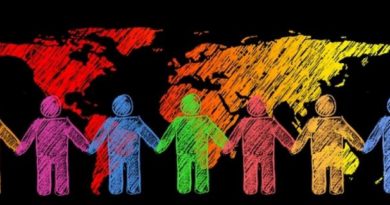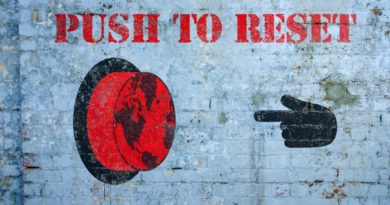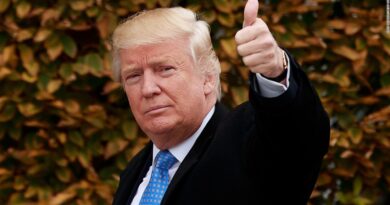The Big Business of Medical Misinformation
Chiropractors traveled from across the United States during a pandemic to a resort in the Wisconsin Dells, a popular tourist attraction in central Wisconsin. It’s an area that has repeatedly seen its hospitals overflow because of COVID-19.
Those chiropractors paid upwards of $399 for “Vax-Con,” which included a 34-page presentation from the disgraced virologist behind “Plandemic” and “included a number of false and unsupported claims” about vaccines, according to a recent investigation by the Associated Press.
The AP found that chiropractors get continuing education credits for these seminars, helping make them some of the biggest drivers of vaccine misinformation while profiting off alternative medicines.
“They have touted their supplements as alternatives to vaccines, written doctor’s notes to allow patients to get out of mask and immunization mandates, donated large sums of money to anti-vaccine organizations and sold anti-vaccine ads on Facebook and Instagram,” the AP reported.
The recent AP investigation highlights another way mis- and disinformation continues to spread along with variants of the novel coronavirus, especially among those susceptible to an anti-vaccine message.
This comes as a whistleblower revealed documentation that showed top executives at Facebook, the world’s largest social media entity, knowingly ignoring the health effects it and its algorithm have on the people populating its network and relying on its related services.
In a media funding model primarily driven by advertising, clicks, and engagement, there’s often little incentive for businesses operating in the “marketplace of ideas” — from 24-hour news networks to social media giants run by profit-focused billionaires — to ensure that facts and truth remain the core of discourse surrounding a virus that has killed more than 4.8 million people globally so far.
While some people may post what they see as humorous pokes at the vaccines or vaccine mandates, their spreading of anti-science rhetoric has created hesitancy in real life that has cost people their lives, forever impacting millions more people who now have to continue without them.
Also, many sources of that information may be personally benefiting from it, yet another industry driving up the cost of healthcare in the United States.

Art by Alyssa Kiefer
The origins of misinformation
At one end, so-called “fake news” can be as simple as a headline that oversimplifies complex scientific information, overstates its impact, or there wasn’t enough scrutiny on the information at various points before publication.
On the other end is intentional disinformation, such as the kind that U.S. government officials say Russian leaders are doing to sow distrust in COVID-19 vaccines. (A person’s ability to trust multiple parts of that narrative depends on their stance on the COVID-19 vaccines, the U.S. government, and Russia, all topics that shouldn’t be dropped into your next COVID-safe dinner party.)
In the middle are memes, politically based humor, satire, commentary, and more, each with their own take on how seriously they should be taken. The latest contender in gaslighting populations is deep-fake technology that uses artificial intelligence to create lifelike videos where people say and do things that aren’t real, essentially adding a new type of gasoline to the information wildfire.
What’s worse is that it feeds into the regular polarization surrounding presidential elections in the United States. It was a first in modern memory followed by a deadly attack on the nation’s Capitol based on the unsubstantiated claims the election was stolen that were able to spread through a population vulnerable to disinformation.
Researchers from the University of Cincinnati focused on the early days of the coronavirus pandemic to see whose voices were the strongest in promoting the antimalarial drug hydroxychloroquine as a treatment for COVID-19.
Dr. Jeffrey Blevins, PhD, head of the UC’s journalism department, led the research and said the bulk of the misinformation surrounding hydroxychloroquine came from accounts linked to the QAnon movement, a pro-Donald Trump conspiracy faction also linked to the Jan. 6 attack on the Capitol.
The UC’s research, published in June in the journal Social Media + Society, found that Trump’s official account, which once had up to nearly 80 million followers, and those of his supporters had the furthest reach on Twitter. That was until Twitter permanently suspended the account of the twice-impeached former president 2 days after the D.C. insurrection.
Blevins says the unsupported claims got the most eyeballs thanks to “bridge actors,” or influencers who took the hydroxychloroquine claims and ran with them without any independent scrutiny. They included conservatives like actor James Woods and Fox News’ Laura Ingraham.
“Even though they didn’t have the medical experience, people wanted to look at what they had to say,” Blevins told Healthline. “We really have a knowledge crisis in this country.”
A pandemic during an election year was confusing and contentious. Misinformation about the coronavirus, the medical impact of COVID-19, and vaccination only prolonged the pandemic and eroded faith in the scientific community.
“We don’t want the truth to become more politicized than it already is,” Blevins said. “Education and expertise has been demonized. We don’t even agree on what ‘research’ means.”
While social media companies have kicked misinformation spreaders like Trump off their platform, the message has already been disseminated and dissected. Blevins says those bans by private social media companies are often seen as political moves, not necessarily ones to help end a global health crisis.
Despite the lack of proven safety or effectiveness, Trump and his supporters continue to push hydroxychloroquine to treat COVID-19.
“I don’t know if the genie goes back in the bottle now,” Blevins said. “It’s too late. The damage has been done.”
While Trump remains banned from most social media, he still gets airtime at places like the ultra-conservative One America News Network, an AT&T-built competitor to Fox News, which Reuters describes as “a network that continues to spread conspiracy theories about the 2020 election and the COVID-19 pandemic,” including that hydroxychloroquine was “miraculous” against COVID-19.
But the biggest names in the spread of misinformation about the effectiveness of vaccines have been doing so for profit long before most people heard of hydroxychloroquine.

Art by Alyssa Kiefer
How misinformation spreads
During a pandemic, social media is a crucial lifeline in staying connected to the outside world while staying home.
While social media may not be the exact source or spark of misinformation, it makes it spread like wildfire — social media serves as news hubs for large parts of the world.
Now it appears that those advocating for accountability have been holding the right people’s feet to the flames.
The New York Times recently revealed that a Facebook report kept private that the most viewed link on its network was a news article suggesting a Florida doctor’s death was caused by the COVID-19 vaccine. That news was barely a blip, as it faced larger scandals and yet another hearing before American lawmakers.
In late September, YouTube — a hotbed of vaccine misinformation — said it would ban the accounts of several prominent spreaders of vaccine lies. It recently suspended the account of Republican Sen. Ron Johnson of Wisconsin for spreading misinformation about hydroxychloroquine and another drug to treat COVID-19.
YouTube also banned anti-vaccine conspiracy theorists Robert F. Kennedy Jr. and Joseph Mercola, the latter of which The New York Times has dubbed “the most influential spreader or coronavirus misinformation online.”
Mercola recently wrote a bestselling book titled “The Truth About COVID-19: Exposing The Great Reset, Lockdowns, Vaccine Passports, and the New Normal.” Kennedy wrote the book’s foreword.
But Mercola didn’t start with anti-vaccine rhetoric during the pandemic. Tax records show that he’s made millions off selling vitamins, supplements, and various natural cures in recent years. Naturally, he’s published research suggesting “physicians can use or recommend vitamin D supplements to prevent or treat COVID-19.”
Mercola, an osteopathic physician, had amassed a fortune selling natural health products claiming to be alternatives to vaccines, according to reporting by The Washington Post. Mercola also donated nearly $3 million to the National Vaccine Information Center, a significant source of mis- and disinformation regarding vaccines.
Blevins said that when people are downplaying the effectiveness of vaccines while also selling supplements, “You certainly have to look at their motivations.”
One of the most recent pieces on Mercola’s site — claiming to be the “#1 natural health website” — uses a common tactic for serial misinformation spreaders: using raw, unverified numbers from the federal government’s Vaccine Adverse Event Reporting System and extrapolating to suggest “there may actually be more than 200,000 deaths and up to 5 million COVID jab injuries.”
While the word “may” does a lot of heavy lifting in that sentence, the Mercola article goes one step further by using comments on Facebook in response to a TV station in Detroit that asked people who lost an unvaccinated loved one to COVID-19. Many of the top responses were about alleged reactions to the vaccine from a friend’s husband or a niece’s boyfriend or from verified accounts that regularly spread disinformation about the COVID-19 vaccines, including doomsday scenarios if large-scale vaccine mandates are enforced.
Claiming he’s being censored following a “McCarthyism like attack” in August, Mercola said his website would publish articles and then delete them 48 hours later on topics like general nutrition, the coronavirus and the “Great Reset,” a conspiracy theory that supposes mass global changes under the “new normal” created under the COVID-19 pandemic.
The 2 hours the stories are up are serving as plenty of time for them to be shared, saved, and read millions of times.
While Mercola has done well for himself selling books — telling would-be readers to get a copy “before it’s too late” — and supplements, among other things, he and others who knowingly spread disinformation so far haven’t been held responsible for any blood on their hands.
Dr. Tyler Evans is the medical director of Alameda County’s Health Care for the Homeless Program in the San Francisco Bay Area and co-founder of the Wellness & Equity Alliance, which aims to shorten the gaps to care during public health crises, namely the most vulnerable populations in the pandemic.
Being surrounded by many forms of medical misinformation daily, Evans says one way to spot wrong information is to look out for modifiers and superlatives like “worst possible” or “miracle” or “magical.” That also includes when things don’t make sense, like drinking bleach or using untested medication that’s been closely associated with a horse.
“If it’s unbelievable and uses emotive words, it’s probably not coming from a reputable media source,” Evans told Healthline.
Evans says the community most at risk of COVID-19 because of compounding factors like race, gender identity, or where they grew up are more likely to be impacted by disinformation and also have a “historic distrust of the system and rightfully so.”
“When it comes to the snake oil salesmen, especially the ones pretending to be healthcare employees, it’s particularly frustrating because it can hurt people,” Evans said.
There’s still a portion of the U.S. population that remains unvaccinated but by no fault of their own due to language barriers, immigration issues, not being able to take time off from work to get the shot, or a combination.
Evans says “vaccine ambassadors” who have similar lived experiences as those populations have a better chance of giving people accurate and vetted health information that can help people make well-informed choices about their health.
Some of that information remains very basic: The shots are free, found to be safe and effective in millions of people, and Pfizer’s has been given emergency use authority in children as old as 12 years. One Pfizer has received full approval for people 16 years and older from the Food and Drug Administration, which is expected to offer Emergency Use Authorization to children as young as 5 years old as early as this month.
But not everyone knows those things to be proven facts. Some want to muddy those waters, whether on accident or purpose, for various reasons, from fear to profit with many stops along the way.
Then that information populates social media, where facts vetted by scientific rigor are held to an equal standard as someone who has an anecdotal story from a co-worker’s cousin. And any of them could be nothing but bots talking to each other in the ether, but that doesn’t change the outcome: People don’t know whom to trust.
“It’s part of the ecosystem we live in,” Evans said. “We always expect some confusion. It’s the disinformation that’s most disheartening.”
*** This article has been archived for your research. The original version from Healthline can be found here ***


